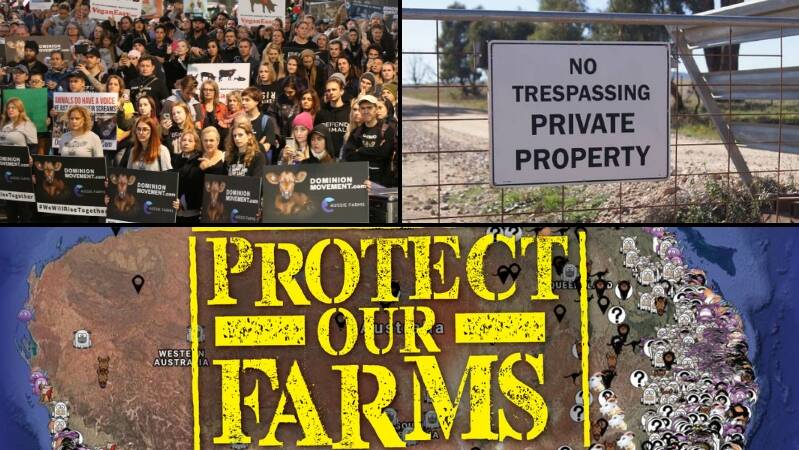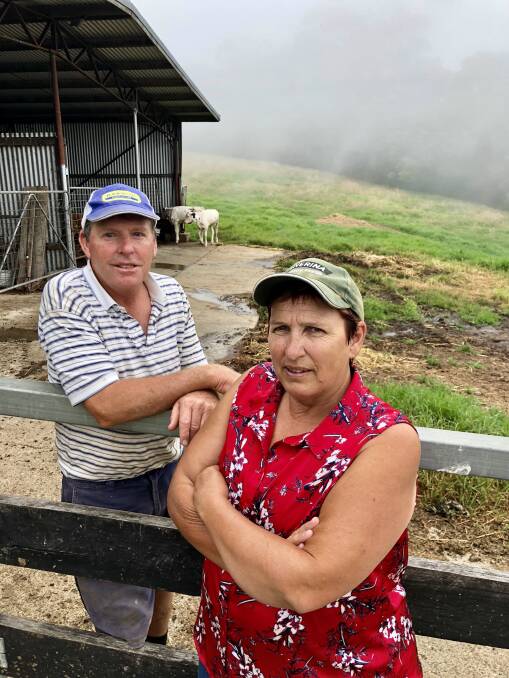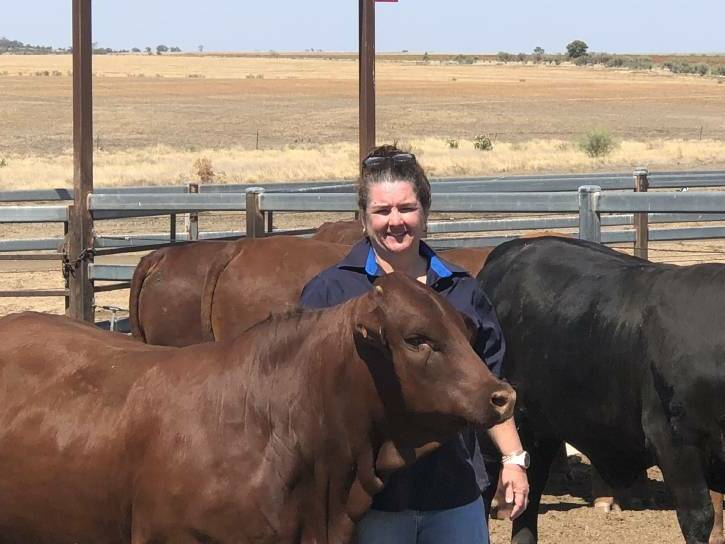
New laws to provide farmers with greater privacy and trespass protections are ready to be put in place, according to leading legal expert.
Subscribe now for unlimited access to all our agricultural news
across the nation
or signup to continue reading
But, both sides of politics have ‘wimped out’ and failed to act on five reviews of federal privacy laws in three decades that all recommended Parliament pass a law giving Australians the right to defend their interests in court when they suffer serious intrusion.
Agriculture Minister David Littleproud says its a job for the states to make tougher trespass penalties as a deterrent against animal activists who break into farms.
But legal expert, David Vaile of the University of NSW said the federal government would much more good if it created a new privacy law, and what’s more the legal framework is ready to go today (see below for more detail).
Farmonline has launched the #protectourfarms campaign to lobby for new privacy laws to protect Australian farmers and those in the livestock supply chain.
The campaign is also calling for the charity status of Aussie Farms to be revoked as well as tougher penalties for farm trespass.
Aussie Farms stirred anger when it published an online map of farm, feedlot and processing locations across Australia, marked with emotive symbols including bloodied axes.
Farmers say the website, which collates information submitted by members, is riddled with inaccuracies.
The Aussie Farms Facebook page hosts on an online community which posts videos of trespassing by activist who state that they aim to either free animals, disrupt production or disseminate footage of legal practices which they say are immoral.
Law change
David Vaile, lead of privacy and and data surveillance at the Allens Hub for Technology Law and Innovation at the University of NSW said individuals can sue for a serious breach of their privacy in most developed democracies like New Zealand, the UK, USA, the EU, South Korea or Japan.
“Here, despite five recommendations in 30 years, Australians still have no right to protect their own privacy interests in court,” Mr Vaile said.
RELATED READING
”It’s become a weeping sore in Australia because major political parties haven't wanted to touch it, no matter how serious the new online threats become.
“Both major parties have had the chance to fix it, and wimped out in the last decade. There’s been five reviews of privacy laws by the Australian Law Reform Commission, and they all recommended, like the High Court suggested in 2001, that Parliament should pass a law giving Australians the right to defend their interests in court when they suffer serious intrusion.
“Basically it could be passed tomorrow given the huge amount of work that’s been done.”
Farmer in firing line
Edwina Beveridge’s family piggery Blantyre Farms has been broken into 10 times. Her experience highlights some of the difficulties associated existing trespass laws.
It took years before the police built a case. Eventually, the home of Aussie Farms chief executive Chris Delforce was raided and surveillance equipment was seized but ultimately the court action against him and an associate was dismissed.
Prosecutors brought trespass charges but they were dropped after a deal with defence. Charges were laid under NSW Surveillance Devices Act, but these were thrown out on a technicality, as the Director of Public Prosecutions failed to date a document.
“The court process was long and drawn out, it took the police a few years to build a case and lay charges, it took more than a year on the court process,” Mrs Beveridge said.
“It was extremely disappointing that this matter was not taken more seriously by the Director of Public Prosecutions or the police, who also decided not to appeal the outcome.
“Getting evidence of trespass is very difficult, we had CCTV cameras, but these are not much help when activists wear balaclavas and night vision glasses.”
Mr Beveridge said her farm had been broken into at least ten times and it’s “extremely stressful to be targeted like that”.
“Activists don’t like being called terrorists, what else do you call someone who creeps about your farm in the middle of the night in balaclavas and night vision glasses?”,” she said.
“It was stressful on our staff and our family. We live on our farm and we have little kids. You never know when someone is coming back.
“Aussie Farms has had a maps identifying our property and how to get there, online for the past five years. I’ve had death threats on social media and people saying they will burn down our farm.
“Activists say they are non-violent, but how do they know who will read their map. We don’t know what crazy person will try to take the law into their own hands?”
Mrs Beveridge said it was clear law makers needed to act.
“I worry that a farmer will do something rash when they come across a balaclava clad activist at 2am, if this happens and someone is injured I believe politicians will be responsible, as this has been going on for so long and nothing has changed,” she said.
“Something needs to change, whether it is new laws or actually ensuring the existing laws are thoroughly prosecuted and farm invasions are taken seriously by the DPP and the government.”
Path forward
Mr Vaile said a new civil ‘tort of privacy’ would be a big improvement on the recourse currently available to farmers or their families.
Currently individuals have to report the incident to police who can investigate and suggest a prosecutor bring a criminal charge of trespass, or try to use the law of nuisance, neither of which address the information abuse issue at the heart of it.
“It sounds like tough ‘law and order’ response to say ‘call the police’, but in fact most actions that would violate a new civil tort of privacy would not lead to a successful criminal conviction,” Mr Vaile said.
“You’ve got a much higher criminal standard of proof ‘beyond reasonable doubt’ for criminal offences, which can be very hard to prove.
“But if there was a civil privacy action open to you, you’d only have to prove it ‘on the balance of probabilities’. If you ran a hopeless case, you may still lose, but at least you’d be the one in control, not some prosecutor with other priorities, and the case would address the information abuse, not some unrelated criminal issue.”
Mr Vaile said the most relevant precedent under the current laws was in the 2001 case in High Court of Australia brought by Lenah Game Meats against the ABC.
The Tasmanian meat processor wanted to block publication of footage obtained from its private premises.
“The court found that, unlike in other similar countries, there was no basis for a legal claim in Australia in either ‘common law’ (made by judges) or in statute (by Act of parliament), and so there is no right to sue in Australia for breach of privacy or similar Intrusions.
The Australian Law reform Commission found there should be a law if privacy is breached.
Mr Vaile said both the Coalition and Labor have ignored these recommendations when in government.
“It reflects the fact that both major parties are still prepared to leave Australians exposed without this basic protection that most other developed countries have - this is a global embarrassment.”




